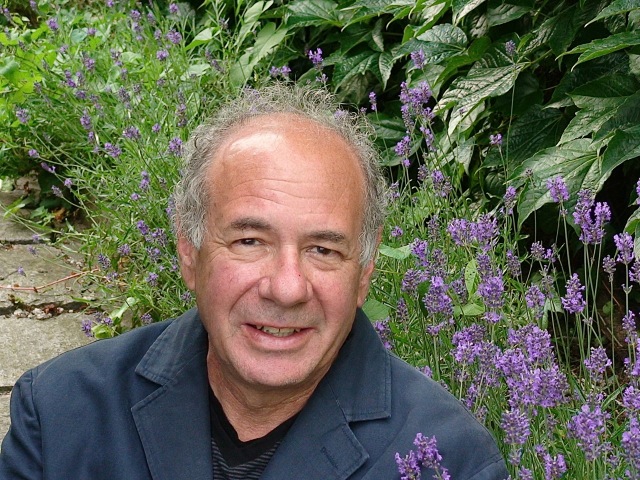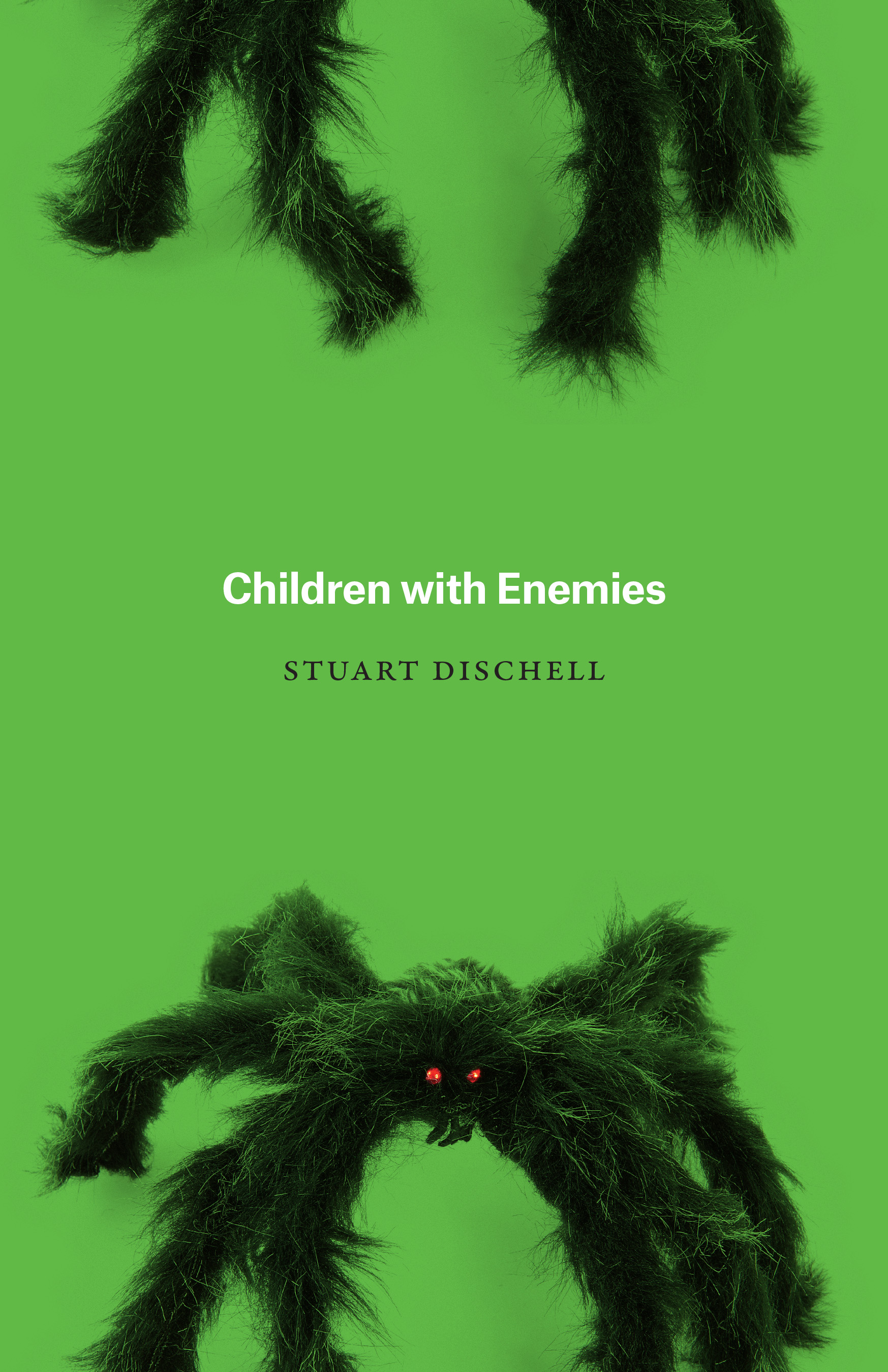Interview: Stuart Dischell
 Midwestern Gothic staffer Sydney Cohen talked with author Stuart Dischell about his poetry collection Children With Enemies, writing dramatic monologues, the importance of determination, and more.
Midwestern Gothic staffer Sydney Cohen talked with author Stuart Dischell about his poetry collection Children With Enemies, writing dramatic monologues, the importance of determination, and more.
**
Sydney Cohen: What’s your connection to the Midwest?
Stuart Dischell: I attended Antioch College in Yellow Springs, Ohio, from 1972 to 1976 and the Writers Workshop at the University of Iowa in Iowa City from 1976 to 1978. Those were formative years in my development as a writer and a person. Yellow Springs was an alternative enclave and was not as representative of the region surrounding it as it was of the experimental tradition of the Midwest and certain of its colleges. Going to Big Ten Iowa City was a culture shock for me, but I came to love Iowa. I often took long drives into the countryside, sometimes to Lone Tree, where I visited friends. Iowa was a very progressive state in 1976.
SC: Children With Enemies, your newest collection of poetry, grapples with the themes of time, history, and memory. More specifically, your treatment of time is flexible in that your characters can step fluidly through history. What interests you about the malleability of time, and which periods or moments in history do you gravitate towards in your writing?
SD: I am most interested in how time as in historical time affects a given location. For instance, if I am walking down the Rue Saint-Jacques in Paris, I am walking down the Roman cardo where elephants once labored and later on the same street where the victims of the Terror were led to the Guillotine. For me, this kind of knowledge increases my experience of a place and makes me wonder whether others who have not read or been told of history still feel its ambient presence. Even the blood on its stones. A city is an aggregate of its stones.
Of course, there is the more personal form of time which takes its form as age. One has a hard time often adjusting to one’s age, and one has a harder time accepting the deaths of friends and family.

SC: The cover of Children With Enemies, a terrifying hairy tarantula suspended against a shocking green background, is at once playful and menacing. What was your inspiration for the cover, and how does it inform the larger work?
SD: I asked the book designer for a cover that was “bright, child-like, and menacing.” I certainly got what I asked for and more. Rather brilliant. I like it because it appears vital. I am no fan of book covers that depict high art and proclaim the seriousness of the work within.
SC: Your award-winning collection Good Hope Road opens with a sequence titled “Apartments,” in which you explore the range of characters in a contemporary urban setting and construct a landscape of urban consciousness. How much of “Apartments” is imagined and how much is a reflection of your real life experience? Do you view urban spaces with sentimentality or frustration?
SD: The people and circumstances in the “Apartments” series are a mixture of experience and imagination. It is true that for over a decade I lived in a wonderful apartment building in Cambridge, Massachusetts, that was occupied by some very interesting people. As in much of my writing, what you might think is fact is fiction and visa versa. I originally wrote twice as many in the series, but cut it back to the ones that were most essential in their characterizations. I don’t think “sentimentality or frustration” are my only choices for urban spaces. I am an urbanist at heart. In relation to your question about the fluidity of time, I love how one’s own actions take on the significance of the deeds of history when one stands at certain intersections.
SC: The second section of the collection, “Household Gods,” includes two dramatic monologues that stand out for their length and point of view. How does the process of writing a monologue differ from that of writing a shorter poem? What was your thought process behind choosing to include monologues in your collection, and how do they shape the work as a whole?
SD: The greatest problem in writing dramatic monologues is to create and sustain a distinct voice, especially when speaking through an identifiable figure such as Henry Adams. Over the years I have written poems in the voices also of Columbus and Macbeth. In each I have tried to make the poems distinct also by making them formally different. I included dramatic monologues as a counterweight to the many more narrative strategies at work in the “Apartments” section.
SC: Your poetry largely deals with the human condition and the minutiae of everyday life, exemplified in collections such as Good Hope Road and Dig Safe. Is there anything particularly Midwestern about your portrayal of the human experience?
SD: Midwestern writers have had a great impact on my formative reading, particularly James Wright, Sherwood Anderson, Robert Bly, Willa Cather, and of course Ernest Hemingway. From each I learned about craft and the human experience that allowed me to translate these things into my own landscape of childhood, the Southern New Jersey coast, and my subsequent experiences in Boston and Paris.
SC: Who are some poets that inspire you, and why?
SD: Ah, so many. Today I have on my desk the Swedish poet Tomas Tranströmer translated by the great Midwestern poet Robert Bly. This is a new selection of poems I have read in other volumes over the course of my writing life. I remember reading them in my dorm room at Antioch and at the Hamburg Inn in Iowa City. Reading Tranströmer’s poems bring me back to the person I was when I started writing. I guess that’s good.
SC: With eight collections and chapbooks, you have an impressive repertoire of published works. Is there anything you wish you would have known when you started writing that you know now?
SD: Writing has been my great friend throughout my life. Sometimes when I have not been creative, my writing has waited for me to arrive, as it were. Being anything in our culture requires determination. Perhaps being an artist or writer requires more fire in the belly. My friend, the poet and non-fiction writer Jeffrey Greene, told me when we were graduate students that you have to want it bad enough. I wanted to be a writer since I was a teenager and I am grateful to have published my books but even more grateful to want to keep writing. If I had known something before, it would be a small thing: I would have kept better journals of my days and always wrote out my early drafts of poems in them. I have done so periodically but not methodically.
SC: What’s next for you?
SD: I am just finishing a novel with far too many characters.
**
Stuart Dischell is the author of Good Hope Road, a National Poetry Series Selection, Evenings & Avenues, Dig Safe, Backwards Days, Standing on Z, and Children with Enemies. His poems have appeared in The Atlantic, Agni, The New Republic, Slate, Kenyon Review, Ploughshares, and anthologies including Essential Poems, Hammer and Blaze, Pushcart Prize, and Garrison Keillor’s Good Poems. A recipient of awards from the NEA, the North Carolina Arts Council, and the John Simon Guggenheim Foundation, he teaches in the MFA Program in Creative Writing at the University of North Carolina Greensboro.






